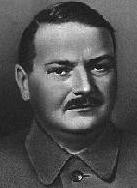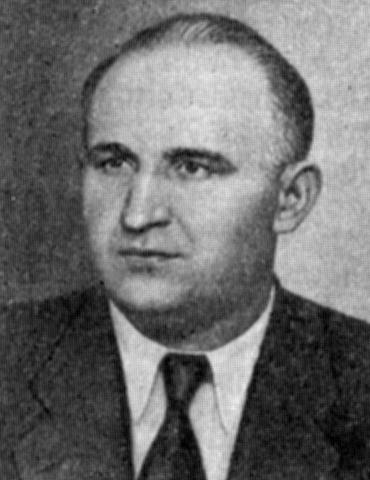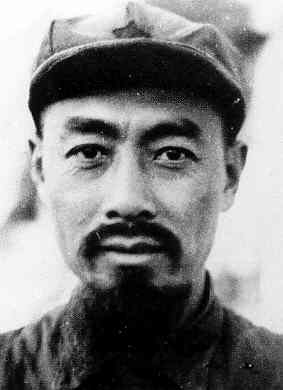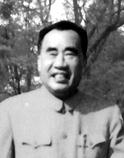Zh
Zhdanov, Andrei (1896-1948)
 Andrei Zhdanov was born in Mariupol, Ukraine in 1896 and joined the Bolsheviks in 1915 and as a close associate of Joseph Stalin made steady progress in the Communist Party hierarchy. He developed Stalin's cultural policy and was behind the establishment of the Union of Soviet Writers and the doctrine of Socialist Realism. Zhdanov was apparently widely knowledgable in all the arts, but retained narrow and dogmatic views.
Andrei Zhdanov was born in Mariupol, Ukraine in 1896 and joined the Bolsheviks in 1915 and as a close associate of Joseph Stalin made steady progress in the Communist Party hierarchy. He developed Stalin's cultural policy and was behind the establishment of the Union of Soviet Writers and the doctrine of Socialist Realism. Zhdanov was apparently widely knowledgable in all the arts, but retained narrow and dogmatic views.
In 1935, Stalin appointed Zhdanov as Secretary of the Leningrad party committee, replacing Sergei Kirov who had been assassinated in 1934. In this post he played an important role in the Great Purge that took place in the Communist Party between 1934 and 1941. In the spring of 1935 tens of thousands of suspect Bolsheviks and their families were deported from Leningrad to northern Siberia. (See The Moscow Trials.)
As party boss of Leningrad he helped defend the city in the Second World War and was a member of the Politburo from 1939 until 1948. In 1947, Zhdanov organized Cominform (Communist Information Bureau) and was instrumental in formulating foreign policy. He also led the post-war purge of non-conformist artists and intellectuals in the Soviet Union, demanding that Soviet writers adhere to the principle of “Partiynost” (party spirit). That is, that they follow closely the views laid down for them by Stalin. This also became known as “Zhdanovism.”
Zhdanov also banned progressive journals such as Zvezda and Leningrad and expelled people such as Mikhail Zoshchenko from the Union of Soviet Writers and persecuted as a result of Zhdanov's criticism. Andrei Zhdanov died on 31st August, 1948, apparently of natural causes. In 1953, it was alleged that he had been a victim of the ‘doctors' plot’ but a recent book alleges that Stalin was responsible, possibly because of the criticism by Zhdanov's son, Yuri, of Trofim Lysenko, who was Stalin's supporter in pushing the party line in the natural sciences.
See speeches at the 1934 Soviet Writers Congress.
Zhivkov, Todor (1911-1998)
 Sec. Bulgarian CP from 1954; in 1984 initiated 'assimilation' of Turkish minority, which led to a mass exodus of Turks in July 1989; in Oct 1989, demands for liberalisation escalated, forcing Zhivkov's resignation. In Jan 1990, placed under house arrest on charges of corruption, abuse of power and inciting ethnic hatred. Ultimately acquitted of all charges, Zhivkov died in 1998.
Sec. Bulgarian CP from 1954; in 1984 initiated 'assimilation' of Turkish minority, which led to a mass exodus of Turks in July 1989; in Oct 1989, demands for liberalisation escalated, forcing Zhivkov's resignation. In Jan 1990, placed under house arrest on charges of corruption, abuse of power and inciting ethnic hatred. Ultimately acquitted of all charges, Zhivkov died in 1998.
Further Reading: Todor Zhivkov Archive
Zhou Enlai (1898-1976)
 Chinese revolutionary. Born to upper class parents. Involved in student organizations from an early age. Founded European branch of Chinese Communist Party (CCP) 1927. Actively involved in the early struggle to liberate China from feudalism. Fought with Communist revolutionaries against Kuomintang and with the United Front during the War of Resistance against Japan. Consistently loyal to Mao Zedong beginning in 1942.
Chinese revolutionary. Born to upper class parents. Involved in student organizations from an early age. Founded European branch of Chinese Communist Party (CCP) 1927. Actively involved in the early struggle to liberate China from feudalism. Fought with Communist revolutionaries against Kuomintang and with the United Front during the War of Resistance against Japan. Consistently loyal to Mao Zedong beginning in 1942.
Premier of the People's Republic of China from 1949 until his death in 1976. He was never purged from the CCP, although attempts were made to discredit him late in his career during his power struggle with Mao's wife, Jang Qing, who was part of the "Gang of Four." Often credited with curbing the excesses of campaigns such as the Cultural Revolution. Died of cancer several months before the death of Mao in 1976.
Further Reading: Zhou Enlai Reference Archive
Zhu De (1886-1976)
 Integral figure in the early stages of the development of the Chinese Communist Party. Joined
German Branch of CCP (founded by Zhou
Enlai) in 1922. Zhu joined the Kuomintang under Sun-Yatsen, but was
purged from its ranks by Chiang Kai-shek in 1927. Veteran of the Long March and
former Commander-in-Chief and Marshal of the People's Liberation Army. He
served as chairman of the National People's Congress from 1959 to
1967.
Integral figure in the early stages of the development of the Chinese Communist Party. Joined
German Branch of CCP (founded by Zhou
Enlai) in 1922. Zhu joined the Kuomintang under Sun-Yatsen, but was
purged from its ranks by Chiang Kai-shek in 1927. Veteran of the Long March and
former Commander-in-Chief and Marshal of the People's Liberation Army. He
served as chairman of the National People's Congress from 1959 to
1967.
Zhu fell from favor during the (Great Proletarian) Cultural Revolution, but was rehabilitated after the fall of the Gang of Four.